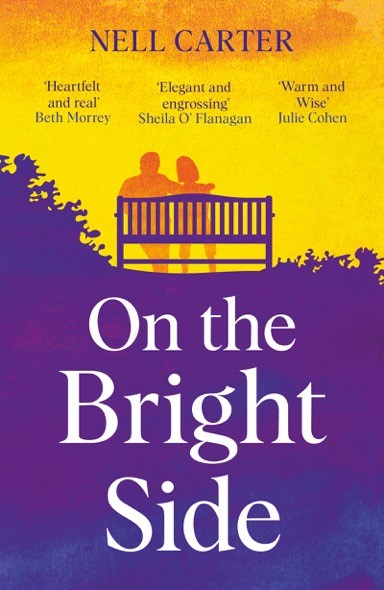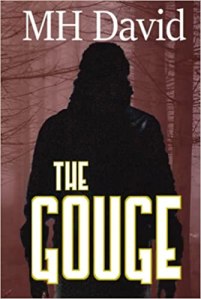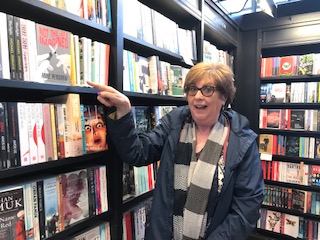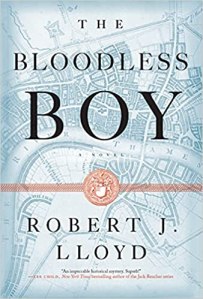As the wave of infection expands from the capital, their food and fuel start to run low. Menaced both by the harsh Russian winter and by the desperate people they encounter, they must put their hatreds behind them if they’re to have a chance of reaching safety…
About the Book
Today I have an extract to share.
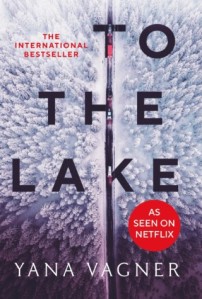
2
PLANNING THE ESCAPE
I’ve had this dream for as long as I can remember. Sometimes
once a year, sometimes less often, but every time I begin to
forget it, it comes back. I need to get somewhere, somewhere
not too far away. I know my mum is waiting for me there, and I’m
on my way but I’m moving very slowly – I bump randomly into
some unimportant people, I get stuck in conversations with them,
like a fly in a cobweb, and then, when I’m almost there, I realise
I’m late, that my mum isn’t there any more and I’ll never see her
again. I am woken by my own cries, my face wet with tears, frightening the man sharing my bed, and whenever he tries to comfort
me and calm me down, I fight and push his arms away, deafened
by my unsurmountable loneliness.
On 19 November our phone fell silent for good; the internet
cut out shortly after that. Mishka was the one who found out –
the only one of us who was at least trying to pretend that life
was running its normal course. Coming out of the sleepy coma
induced by pills, which Sergey would make me take every time
I couldn’t stop crying, I would leave my room and set off to find
the two remaining people in my life. Sometimes I would find them
both in front of the computer, going through the newsfeed, and
sometimes Sergey would go outside and start chopping wood,
although I could hardly imagine a more pointless way to spend
time. Mishka would still sit in front of the computer, watching
YouTube and playing online games, as kids often do when they
want to hide from adults’ problems, which drove me to paroxysms of crying. Then the front door would bang open, letting in a
stream of cold air; Sergey would come in, lead me to the bedroom
and make me take one more pill.
The day we were cut off from the rest of the world, I woke up
because Sergey was shaking my shoulder.
‘Wake up, baby, we need you. The phone’s dead, and so is the
internet. We can only get satellite news, but our English isn’t good
enough.’
When I came downstairs, I found Mishka sitting on the sofa
in front of the TV. He had a dictionary on his lap and a focused
and unhappy expression on his face, as if sitting an exam. He
was accompanied by Marina, our beautiful neighbour, and her
plump husband Lenny, Sergey’s billiards partner. They had come
over from their house opposite, a three-storey stone monstrosity
with tasteless turrets.. Their little daughter was sitting on the
floor near the sofa, and had a bowl of seashells in front of her,
the ones we had brought back from our honeymoon. Judging
by her bulging cheek she had one of the shells in her mouth,
and a thin, sparkly thread of saliva was dripping from her chin
into the bowl.
Two days of sleeping pills and crying must have taken their toll
because Marina, looking me over (even early in the morning her
make-up was perfect; there are women who look absolute angels
any time of the day), brought her hand to her mouth and seemed
about to leap up from the sofa.
‘Anya, you look awful. Are you unwell?’
‘We’re fine, we’re healthy,’ said Sergey immediately, and I was
angry at him for saying it quickly as if it was we who were sitting
in Marina’s lounge and our child dribbling on their things. ‘Guys,
something bad happen—’
Before he could finish the sentence – I don’t know why, but it
was important that I didn’t let him finish – I went over to the little
girl and, having unclenched the tiny wet fingers, ripped the bowl
out of her hands and put it on a high shelf.
‘Marina, why don’t you take the shell out of her mouth, she’ll
choke, it’s not a sweet.’
‘That’s my girl,’ said Sergey under his breath, relieved. Our eyes
met, and I couldn’t help smiling at him.
I couldn’t stand their company – neither Marina’s nor her
simple, noisy husband’s. Lenny, stuffed full of money and vulgar
jokes; he had a billiards table in the basement and sometimes
Sergey would go and play there at weekends. During the first six
months of our life in the village I had made an effort to keep him
company, but quickly realised that I couldn’t even pretend to enjoy
it. ‘I’d rather have no social life at all than this idiotic imitation of
it,’ I’d said to Sergey, and he said, ‘You know, baby, you shouldn’t be
so fussy. If you live in the country, you have to make friends with
your neighbours.’ And now these two were sitting in my lounge,
on my sofa, and my son, with a look of desperation on his face,
was trying to translate the news on CNN for them.
While Marina was trying to hook the last shell from her daughter’s mouth, Lenny tapped lightly on the sofa with the palm of
his hand, as if he was the owner of the house, and said, ‘Anya, sit
down and translate. The phones are dead, the Russian news is all
lies, and I want to know what’s going on in the world.’
I sat on the edge of the coffee table, not wanting to sit next to
them, then turned to the TV. The sound from the television almost
drowned out Marina’s helpless cooing (‘Dasha, spit it out, spit it out now’) and Lenny’s booming roars of laughter (‘We don’t have
a nanny now, because of the quarantine, so Marina had to remember her maternal instincts – and she’s not doing great, as you can
see’). I raised my hand and they all fell silent. While I listened and
read through the running messages, ten or fifteen minutes passed,
and when there was dead silence, I turned to them. Marina was
now frozen on the floor, clutching a wet seashell which she’d excavated from Dasha’s mouth, and Lenny was holding his daughter
in his arms, his hand over her mouth and his face serious. I had
never seen him look so tense. Mishka sat quite still, next to Lenny,
looking like a Pierrot at a carnival with his thin face and long nose
and the corners of his mouth turned down and eyebrows raised.
The dictionary had slid to the floor; perhaps his English was good
enough after all to grasp the most important news.
Without glancing at Sergey, who stood behind the sofa, I said:
‘Theyy’re saying it’s the same everywhere. About seven hundred
thousand infected in Japan, the Chinese aren’t saying how many,
Australia and Britain have closed their borders – only this didn’t
help, looks like they were too late. Planes aren’t flying anywhere.
New York, Los Angeles, Chicago, Houston – all the large cities in
the US are under quarantine and Europe is in the same kind of
shit. That’s it in a nutshell. They say an international organisation
has been set up to work on a vaccine but that there will be nothing
useful for at least two months.’
‘What about us?’ Lenny took his hand away from the girl’s
mouth and she started sucking her thumb straight away. Father
and daughter were both looking at me and I noticed for the first
time how similar they were: poor little baby, she hadn’t inherited
anything from the fine-boned, well-bred Marina but had small
close-set eyes, chubby white cheeks and a little pointed chin.
‘Why would they bother about us? They haven’t said much
about us so far. Everything’s bad everywhere – especially in the
Far East, since you can’t close the Chinese border. They say a
third of the population is infected. St Petersburg is closed, Nizhny
Novgorod is closed.’
‘What about Rostov, what are they saying about Rostov?’
‘Lenny, they’re not talking about Rostov, they’re talking about
Paris and London.’
It was somewhat gratifying – four pairs of frightened eyes
watching my face, listening to every word I said, as if something
important depended on it.
‘My mother’s in Rostov,’ Lenny said quietly. ‘I’ve tried calling
her all week, and now the phone’s dead… Sergey, is Anya all right?
Anya, are you OK?’
While Sergey was ushering our guests towards the door (Lenny
was holding the little girl in his arms and Marina was looking
puzzled: ‘Did I say anything wrong? Did anything happen? Do you
need any help?’), I was trying to catch my breath. I felt a lump in
my throat and caught Mishka’s eye – Don’t tell them, don’t tell them,
be quiet. He was looking at me, biting his lip, his face helpless and
desperate. I reached over to him and he jumped from the sofa to
me, the table ominously creaking under his weight, grabbed my
shoulder and whispered hotly into my collarbone:
‘What’s going to happen now, Mum?’
‘Well, we’re sure as hell going to break this coffee table.’
Mishka immediately burst out laughing. He’s done this since he
was very little; it’s always been easy to make him laugh. Whatever
the problem, it’s the easiest way to calm him down when he’s upset.
Sergey came into the lounge. ‘What’s so funny?’
I looked at him over Mishka’s head and said, ‘I think it’ll only
get worse. What shall we do?’
For the rest of the day, we all – even Mishka, who had abandoned his games – sat in the lounge in front of the television, as
if we had only just come to value this last link with the outside
world and were eager to absorb as much information as possible
before the link was finally broken. But Mishka said:
‘Even if they disconnect all the channels nothing will happen
to the satellite, Mum, it’ll continue circling the world.’ But he sat
with us until he settled his dishevelled head on the armrest and
fell asleep.
When it got late, Sergey turned off the light, lit the fire in the
hearth and brought a bottle of whisky from the kitchen, along
with two glasses. We sat on the floor in front of the sofa where
Mishka, covered with a rug, was asleep, and sipped the whisky;
the warm orange light of the fire mixed with the bluish glow of
the TV screen, which was murmuring quietly and showing mostly
the same footage we had seen in the morning: presenters in front
of world maps with red dots on them, empty streets in various
cities, ambulances, soldiers, distribution of medicine and food
(the faces of people queuing differentiated only by the colour of
their masks), the closed doors of the New York Stock Exchange.
I wasn’t translating any more; we just sat and looked at the screen
and it briefly felt like a regular night in, as if we were watching a
boring film about the end of the world, with an overly drawn-out
introduction. I put my head on Sergey’s shoulder and he turned to
me, stroked my cheek and said into my ear, in order not to wake
Mishka: ‘You were right, baby. It’s not going to end any time soon.’
e noise that had woken me stopped as soon as I opened my
eyes. It was dark in the room; the fire had gone out and the last of
the red embers weren’t creating any light. I could hear Mishka’s
breathing on the sofa behind, and Sergey was asleep next to me,
sitting up with his head thrown back. My back was stiff from hours
of sitting on the floor, but I sat still, trying to understand what
exactly had woken me. For a few endless seconds, I sat in complete silence, listening hard, and just as I was beginning to think that I had dreamt the strange noise, I heard it again, right behind my back – an insistent, loud rapping on the window. I turned to
Sergey and grabbed him by the shoulder. In the dim light I saw
that his eyes were open; he put his finger to his lips, and then,
without standing, reached over and found an iron rake, hanging
by the fireplace, which made a clinking noise when he took it
off the hook. For the first time in the two years we had spent in
this beautiful house, full of light and comfort, I bitterly regretted
that instead of a sullen-looking brick fortress with barred arrow
slits, like most of our neighbours’ houses, we had chosen an airy
wooden construction with a glass front, made up of enormous
windows stretching to the ridge of the roof. I realised how insecure
this glass protection felt, as if our lounge and the whole house
behind it, with all our lovely possessions, favourite books, light
wooden staircase, with Mishka, peacefully asleep on the sofa, was
only a doll’s house without a front wall, which a gigantic alien
arm could penetrate, destroying our comfortable life, turning
everything upside down, scattering everything and snatching any
of us in a blink of an eye.
We glanced towards the window, near the balcony door which
led to the veranda, and saw a silhouette clearly visible against the
night sky.
Sergey tried to stand up and I clung to his hand, which was
holding the rake, and whispered:
‘Wait, don’t get up, don’t!’ and then we heard a voice from
behind the glass:
‘How long are you going to hold out for in your fortress? I can
see you through the window. Open up, Sergey!’
Sergey dropped the rake, which fell with a loud clang, and
rushed to the balcony door. Mishka awoke, sat up on the sofa and
rubbed his eyes, looking around him as if he didn’t know where
he was. The door opened, letting the scents of fresh frosty air and
cigarette smoke into the house, and the man standing behind the
window came in and said:
‘Turn the light on, damn you.’
‘Hi Dad,’ Sergey said, groping for the light switch, and only
then did I breathe out, stood up and came closer.
Shortly after we’d met three years ago, Sergey had introduced
me to his father. He had waited about six months after his ex-wife
had finally loosened her grip on him, the post-divorce fervour had
calmed down and our life had started becoming normal. Sergey’s
dad won my heart the moment he entered the small flat on the
outskirts of Moscow which Sergey and I had rented to be able
to live together. He looked me up and down as if devouring me,
gave me a mighty and not entirely fatherly hug and demanded
that I call him ‘Papa Boris’, something I could never bring myself
to say, so I simply avoided addressing him at all. Then, a year or
so later, I settled on a neutral ‘Boris’, and we never became more
informal than that. But I felt at ease with him from the start. It
was easier in his company than among Sergey’s friends, who were
used to seeing him with another woman and paused obviously and
politely every time I spoke, as if they needed time to remember
who I was. I was constantly catching myself trying to make them
like me at any cost. It was a childish, pointless competition with
a woman whose ex-husband I was living with. I hated myself for
feeling guilty about that. Boris didn’t visit us often. Sergey and he
had some complicated history from Sergey’s childhood, which
neither of them liked talking about; it always seemed to me that
Sergey was both proud and ashamed of his father. They rarely
called each other and saw each other even less – he didn’t even
come to our wedding. I suspect this was simply because he didn’t
have a decent suit. A long time ago, to the surprise of his friends
and family, he had given up his career as a university professor,
rented out his small Moscow flat and left to live in the country
near Ryazan, where he had been ever since, in an old house with
an antiquated furnace and an outside toilet, rarely leaving the
place. He did a bit of poaching from time to time and, according
to Sergey, drank a lot of vodka with the locals, apparently earning
a great and undeniable reputation.
He stood in our lounge, which now had its lights on, squinting
at the brightness; he wore Sergey’s old shooting jacket, which had
seen better days, and a pair of felt winter boots with no overshoes
which had oozed a small but growing puddle on the warm floor.
Sergey lurched forward towards him but then stopped, and they
both froze a step apart and didn’t embrace. Instead, both turned to
me and I stood between them and hugged them both. Through the
warm, thick smells of smoke and cigarettes I smelled alcohol, and
I thought it was bizarre he’d made it here without being stopped,
but then it dawned on me that it was unlikely anyone was bothered
about policing minor roads these days. I pressed my cheek against
the worn collar of his coat and said:
‘It’s so good that you came. Are you hungry?’
In a quarter of an hour, fried eggs were sizzling on the cooker
and all of us, including Mishka, who was desperately trying to stay
awake, sat around the kitchen table. It was half past four now and
the kitchen was full of the appalling smell of Boris’s cigarettes – he
only smoked the cheap and strong Java brand and waved away
Sergey’s offer of Kent. While the food was cooking, they’d had time
for one shot of vodka each, and when I put the steaming food in
front of them and Sergey wanted to pour another one, Boris unexpectedly covered his glass with his large hand and nicotine-stained
fingers and said: ‘Enough of the high life for me, I think. I came
to tell you kids that you’re idiots. What the hell are you doing in
this glass house, frying eggs and pretending everything is OK, eh?
You didn’t even lock your gate. I know your fancy gate, and the
rickety fence, if you can call it that, and this whole apology for a
safe house won’t stop a child from breaking in, but still, I expected
you to be smarter than that.’
He was half-joking, but his eyes were serious. I noticed that
his hand, holding another cigarette, was shaking from tiredness
and the ashes were falling straight onto the plate with the fried
egg. His face was grey and there were dark circles around his eyes.
Wearing a jumper of an indefinable colour, with an overstretched
collar (probably Sergey’s too), thick trousers and felt boots, which
he hadn’t even thought to take off, sitting in our stylish, modern
kitchen, he looked like a huge, exotic bird. The three of us sat
around him like scared children, catching every word he was saying.
‘I was hoping that I wouldn’t find you here, that you had enough
brains to understand what’s going on and had boarded up your
silly doll’s house and run away,’ he said, cutting off half the fried
egg with his fork and holding it up in the air. ‘But, since I know
your unthinking carelessness of old, I decided to check if I was
right and, unfortunately, I was.’
We were silent – there was nothing to say. Boris looked regretfully at the fried egg shaking on his fork, put it back down and
moved the plate away. It was obvious that he was looking for
words, and part of me already knew what he wanted to say, and to
delay the moment I moved to get up and clear the table, but Boris
made a motion with his hand to stop me and said:
‘Wait, Anya, it won’t take long. The city was closed two weeks
ago.’ He sat with his hands folded in front of him and his head
bent. ‘And it’s been just over two months since the first people got
infected – if, of course, they’re not lying to us. I don’t know how
many people needed to die before they decided to close the city,
but given that they turned the phones off, everything’s happening
faster than they were expecting.’ He lifted his head and looked at
us. ‘Come on, kids, look more intelligent. Have you never heard
of mathematical modelling of epidemic diseases?’
‘Yes, I remember, Dad,’ said Sergey.
‘What’s modelling of epidemic diseases?’ Mishka asked. His
eyes were wide with surprise.
‘It’s an old technique, Mishka,’ Boris said, looking at me. ‘It was
in use even in the seventies, when I worked at the research institute. I know I’m out of practice now, but I should think the general
principles are still the same. I still remember it – it’s like riding
a bike. Once you learn, you don’t forget it. Briefly, it depends on
the disease – the way it spreads, how infectious it is, how long its
incubation period is, and what the death rate is. What also counts
is what the government does to fight the disease. Back then we
made calculations for seventeen infections, from bubonic plague
to common flu. I’m not a doctor, I’m a mathematician, and I don’t
know much about this new virus and I’m not going to bore you
with differential equations, but judging by how quickly the situation is progressing, the quarantine hasn’t helped. Instead of getting
better, people are dying, and dying fast. Maybe the authorities are
not using the right medicine, maybe they don’t have anything to
treat it with, or maybe they’re still looking for the way to treat it,
whatever it is. I don’t think the city has died yet, but it’ll die soon.
And before the chaos begins, I’d try to get away as far as possible
if I were you.’
‘What chaos?’ I asked, and then Sergey spoke.
‘They’ll try to get out of the city, Anya – those who aren’t ill yet,
together with those who are already infected but don’t know it,
and they’ll also bring those who are already ill, because they can’t
leave them behind. They’ll go past our house, they’ll knock on our
door and ask for water or food, or to let them stay overnight, and
as soon as you agree to do any of that, you’ll get infected.’
‘And if you don’t agree, Anya,’ said Boris, ‘they might get upset
with you. The situation as it stands doesn’t sound very promising.’
‘How much time do you think we have, Dad?’ Sergey asked.
‘Not much. I think a week max, if it’s not too late already.
I know I had a go at you, but I’m no better. What was I thinking? I should have come to you straight away, as soon as they
announced the quarantine, instead of binge drinking in my village.
I’ve brought some stuff with me – not everything that’s needed,
of course, I didn’t have much cash on me, and I was in a hurry,
so we’ll have to scramble to get away as soon as possible. Sergey,
open the gate, I need to bring my car in. I’m afraid the old banger
won’t make it if I drive her again. For the last few kilometres I was
seriously worried I’d have to walk the rest of the way.’
And while he was getting up and rummaging through his
pockets for the keys, I looked at him and thought that this clumsy,
loud man, who we’d forgotten about and hadn’t called once to
check on since the epidemic had started, this man had lefthis
safe village, loaded the car with his simple possessions and was
prepared to dump it in the middle of nowhere if the twenty-yearold Niva died, and to walk in the freezing cold to make sure we
were still here, and to make us do what he thought would save our
lives. I looked at Sergey and saw that he was thinking the same.
I thought he was going to speak, but he simply took the keys from
Boris and went outside.
When the door closed behind him, the three of us stayed in
the kitchen. Boris sat down, looked at me, unsmiling, and said:
‘You don’t look great, Anya. And your mum?’
I felt my face crumpling and quickly shook my head. He took
my hand and blundered on:
‘Have you heard from Ira and Anton?’
I felt my tears drying up before I’d even started crying, because
I had forgotten, completely forgotten, about Sergey’s first wife
and their five-year-old, Anton. I pressed my hand to my mouth
and shook my head, horriffed. He frowned and asked, ‘Do you
think he’ll agree to leave without them?’ before answering his
own question: ‘Although first we need to know exactly where
we’re going.’
We didn’t talk any more that night: when Sergey came back
into the house, bent under the weight of the huge canvas rucksack,
Boris jumped to his feet to help, quickly giving me a warning
glance, and the conversation stopped. For the next half hour, both
of them – stamping hard on the mat outside to shake the snow off
their boots every time they returned – brought in Boris’s luggage
from the Niva, which was now parked outside the house, as well
as some bags, sacks and canisters. Sergey suggested leaving some
of the stuff in the car (‘We don’t need it right now, Dad’) but Boris
was adamant, and soon the whole of his motley belongings were
piled in the study, where he insisted he wanted to sleep, refusing
the bed linen I offered him.
‘No need to make up a bed, Anya,’ he said. ‘I’ll be fine on the
sofa. We don’t have much time le for sleep anyway. Lock the
doors and go to bed, we’ll talk again in the morning.’ Then, still in
his felt boots, he trotted into the study, leaving a wet trail behind
him, and shut the door.
His orders to call it a day were what was needed. First, without saying a word, Mishka went off to bed and I heard his door
shut upstairs. Sergey locked the front door and left for bed too.
I went through every room downstairs, turning off the lights. Ever
since we moved here, this had become one of my favourite routines. After guests left, or after our usual, peaceful family evening
together, I would wait until Sergey and Mishka had gone to bed
and then empty the ashtrays, remove the dishes from the table,
adjust the cushions on the sofa, have a last cigarette in a quiet,
warm kitchen, and retreat up the stairs, leaving behind the cosy,
sleepy darkness. Then I’d stand outside Mishka’s door for a while,
and finally enter our dark airy bedroom, take off my clothes, slip
under the blanket and cuddle up to Sergey’s warm back.
A deadly flu epidemic sweeps through Moscow, killing hundreds of thousands. Anya and her husband Sergey decide they have no choice but to flee to a lake in the far north of Russia.
To the Lake by Yana Vagner was published by Swift Press on 4 November 2021.
Joining them on their journey are her son and father-in-law; Sergey’s ex-wife and son; and their garish neighbours. But then some friends of Sergey show up to complete Anya’s list of people she’d least like to be left with at the end of the civilised world.


